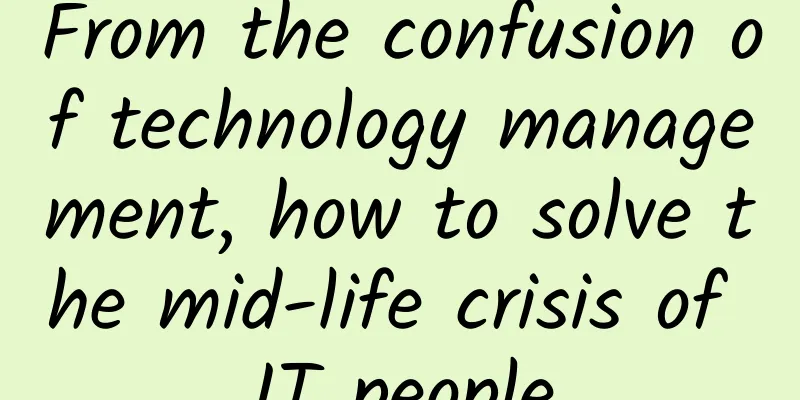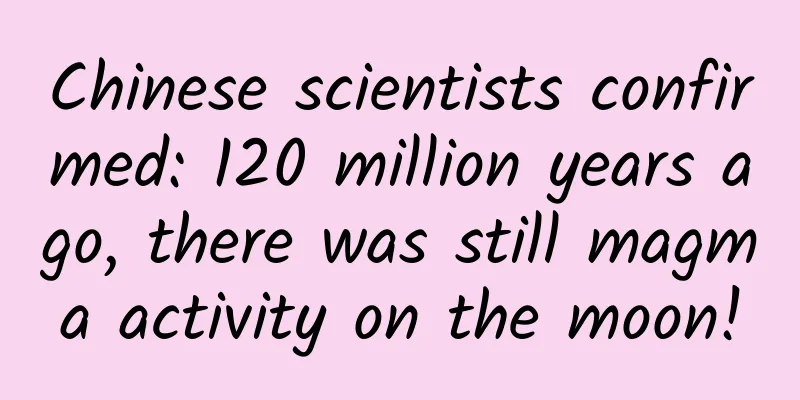From the confusion of technology management, how to solve the mid-life crisis of IT people

|
As an old technical person, I will not talk about technology today, but about the career development of technical personnel: the understanding of technical management positions, such as technical director. First, I will post a career development roadmap for technicians, which is divided into management and technical routes. In foreign countries, positions for management and technical routes are divided into IT Manager and TechLead. But in China, there is no pure management route. Management positions must have specific technical work requirements. Today I will talk about my understanding of the job requirements of "Technical Director". I understand that the technical director's responsibilities should include:
In technical work, I think what is tested more is the technical depth and breadth of a technical manager, while in management work, what is tested more is the ability of a technical manager to coordinate complex people and things. 1. Technical work An excellent technician should have the following three technical capabilities:
A technical manager should first be an excellent technician and must be able to handle these three technical capabilities with ease. 1. Key technical capabilities You can also think of it as overcoming technical difficulties. I have seen people in my circle of friends, including Zhang Xuefeng, CTO of Ele.me, Yi Su, CTO of DingTalk, etc., coding and demonstrating some difficult solutions in front of the team. Technical managers are not required to write code, but in certain high-risk technical scenarios, technical managers must be able to take charge personally so that they can take over when team members are unable to resolve the problem. Moreover, understanding the team's code situation and integrating into the team's code writing also facilitates the control of the system architecture. In addition, as a demonstration code, it can help managers better establish their authority in the team. 2. Architecture design capabilities When we talk about architecture design, we usually mention "technical architecture" and "business architecture". A technical architecture separated from a business architecture will never succeed. This requires technical managers to have a good understanding of the business. Moreover, architectural design does not only mean being able to draw architectural diagrams, write architectural documents, and stack popular technologies on drawings; an architect who has never been on a construction site will never be able to build a good building. On the contrary, a technician who wants to write a good system without doing architecture design is either a genius or an idiot. The design of the architecture should better consider the operating efficiency, business scalability/scalability, and module management of special scenarios. If this cannot be done, the system will become more and more redundant as the business progresses, and you will eventually have to worry about how to "decouple" it. "Refactoring" is often proposed in such scenarios, which is a harmful choice to the system and the business. Therefore, as a technical director, you must have a broad vision to organize modules and architectures to avoid early design defects that cause painful late "reconstruction". 3. Engineering management capabilities Many people are unfamiliar with "engineering management capabilities". If I separate them into "performance", "operation and maintenance" and "efficiency", it will be easier for everyone to understand. We believe that engineering management capabilities are more related to stability and efficiency. In a small team, engineering management capabilities are often not very valuable, but when it comes to a large team, the operational stability and efficiency of the large team become prominent issues. This mainly includes the ability of continuous optimization and the ability to use tools, and requires a closer look at process management and business understanding, and involves more small and trivial things. I have seen many technical managers who started out as developers, but after being promoted to management positions, they had to learn about operations and maintenance, which all fall into the category of engineering management capabilities. 2. Management Work For an excellent technical manager, in addition to the three technical capabilities, he should also have the capabilities of team management and project management. 1. Team management Team management is personnel management. Many technicians hate management work. It sounds really challenging to let a technician who has been dealing with machines without temper and emotions for many years to deal with the complicated personnel management. But you have to know that the goal of management is to achieve organizational goals, and the most important thing is to establish management standards, implement them and verify the results. Managers do not necessarily have to do all of these things themselves. In building our organization, we emphasize team building, so we can arrange for people who are good at this to take the positions of "deputy director" or even "project manager" or "assistant." I think a technical director should devote 30% - 40% of his energy to team management, mainly including the following aspects: Performance Appraisal The KPI of technical personnel has always been an eternal problem, and it is still a hot topic. The difficulty lies in the fact that the quality of technical personnel's work is difficult to quantify and is affected by too many uncontrollable factors. I think the performance indicators given to technical personnel can achieve two purposes: one is to quantify quantifiable things, and the other is to encourage his enthusiasm. When we say something is quantifiable, we usually think of it as quantifying the time schedule or the number of bugs, the number of projects, etc. However, it is also possible to modularize the factors that can ensure "quality" and quantify them in modules. Of course, this requirement is relatively high. Because the so-called quality assurance module needs to be determined by the technical director or at least be a suggestion, rather than being left to the technical staff to set up by themselves, such as setting unit test indicators and quality monitoring indicators that must be completed. Many people ask whether it is necessary to set business indicators in the assessment indicators of technical personnel. I think it is feasible to do so when the business is relatively stable. Business indicators can help technical personnel better understand the goals of the larger team, know how the value of technology is reflected in business processes, and better exert their initiative. Organizational structure design and personnel recruitment I think organizational structure design is more related to the efficiency and ability of the team, including the addition and deletion of positions, flat structure or gradient structure, and what kind of people are placed in what kind of positions. This is also a major course that managers should understand. As for recruitment, I just want to say that the technical director should focus on key positions, and the recruitment for ordinary positions can be done by managers. But don't underestimate recruitment. Finding people with above-average abilities for the team is the basis for a team to go far. Training of ladder personnel I care more about this. Just like I don’t think a person’s growth is a matter of course, I think everyone’s growth is influenced by important people and things. The environment is very important for a person's growth. We should try our best to create an environment for sustainable growth, including the following three points:
Cross-departmental communication and coordination For the technical director, in addition to handling matters within the department, matters outside the department also require a certain amount of coordination and communication. However, I do not recommend spending too much time on external meetings and communications. More communication should follow the project, and the project leader should follow up and provide feedback. You only need to coordinate those resources that others cannot get. Of course, the reason you can get them is mostly because of your prestige in the company and the help you have provided to others. 2. Project Management Project management is the management of things. Many companies will set up the role of project manager, so the technical director does not need to worry about this; but conversely, every technician also plays the role of project manager, and the technical director must be the person in charge of the project. Matters related to the project may be more trivial, but they can be assigned according to the project leader. What the technical director needs to do is to designate a person in charge, inquire about the project plan and progress, and solve problems when the project encounters resistance. It mainly includes two aspects:
3. Write in *** There is a saying that a leader is someone who takes resources that others cannot get, makes decisions that others cannot make, and assumes responsibilities that others cannot assume. However, I would say that the job of a technical manager is more difficult. A technical manager must first have professionalism and then leadership. He needs to have a compassionate heart and medical skills like a doctor, rather than simple and crude factory management. I also do not agree with the view of many people that as time goes by, technical people will eventually become technical managers. Otherwise, where would the "midlife crisis" come from? Qualitative changes cannot be achieved through the accumulation of time. Many technical managers around me often lament: "I feel that my career as a technical director has ended and I have no future." I just want to say that from the growth of technical capabilities, to the growth of complex management capabilities, and then to the growth of vision and decision-making capabilities, this is the ability growth process of a technician, from a programmer to a middle-level manager (technical director) and then to a senior manager (CTO). If you feel weak, maybe you should go out and see more. After all, some things are learned through study, and some things are gained through more travel and communication, such as emotional intelligence and vision. The more you see and hear, the more you will know how to deal with things. |
<<: iOS 12 foreshadows five future trends for iPhone and iPad worth paying attention to
>>: How to spend the middle age of programmers
Recommend
Xiaohongshu’s traffic and core recommendation logic!
I have read hundreds of experience summary articl...
If you have a cold or fever, you can test for 12 respiratory pathogens at home! Is “accurate self-testing” reliable?
At present, we are still in the high season of re...
APP user growth: How to use data analysis to improve user growth?
How can we make our APP stand out among a large n...
Do you use a smartphone?
Market research firm Juniper Research (hereinafte...
Priceonomics: Global AI investment analysis
Much of the current AI investment is led by large...
One article, 1.1 million views + 30,000 favorites, how to promote an App virally?
When we mention viruses, we will think of influen...
Beware! Your old phone may reveal your privacy
The speed of electronic product iteration is gett...
7 tips and analysis methods for ToB content operations!
This article analyzes competitors from three pers...
Juyi Thinking's most profitable project on Douyin in 2021, Oral Broadcast Number 1.0
【Juyi Thinking】The most profitable project of Dou...
How come my eyes became nearsighted when they are in good condition?
Mixed Knowledge Specially designed to cure confus...
After eating hot pot for several days, the whole family went to the hospital! Doctors urgently remind
As the weather gets colder, hot pot has become a ...
After teasing 22 apps, Wandoujia launched a grand art marketing campaign...
As one of the earlier Android app stores to be la...
How much is the price for being a Shaoyang Automobile Mini Program agent? Shaoyang Automobile Mini Program Agent Price Inquiry
Why should you be an agent for WeChat Mini Progra...
The latest influenza surveillance weekly report is released! Is taking oseltamivir a better way to prevent influenza?
We are now gradually entering winter, and also en...
Tips to improve landing page registration conversion rate!
Without further ado, here is a picture. This is t...









